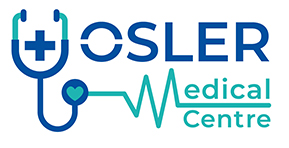
Gambling disorders, characterized by compulsive betting behaviors and an inability to stop despite negative consequences, are a growing concern in today’s world. The accessibility of online gambling and its normalization in mainstream culture have made individuals more susceptible to addiction. Behavioral therapy has emerged as one of the most effective approaches for treating gambling disorders, offering evidence-based methods to address the psychological and emotional roots of compulsive gambling. Additionally, encouraging individuals to improve blackjack skills with basic strategy can shift the focus from compulsive gambling to skill-based gaming, promoting a more controlled and mindful approach to gambling activities.
This article explores the role of behavioral therapy in treating gambling disorders, the best practices for its integration, and how healthcare providers can deliver comprehensive care to individuals struggling with this condition.
Understanding Gambling Disorders
Gambling disorders are classified as behavioral addictions in the DSM-5 (Diagnostic and Statistical Manual of Mental Disorders). They share similarities with substance use disorders, including cravings, tolerance, and withdrawal symptoms.
Key Symptoms:
- Loss of Control: Persistent inability to reduce or stop gambling.
- Chasing Losses: Continuing to gamble to recover lost money, leading to greater losses.
- Neglect of Responsibilities: Gambling at the expense of work, relationships, and personal well-being.
- Emotional Distress: Feelings of guilt, shame, or anxiety associated with gambling.
Why Behavioral Therapy?
Gambling is deeply tied to thought patterns and emotional triggers. Behavioral therapy aims to reframe these patterns, addressing the root causes of the addiction.
Types of Behavioral Therapy Used for Gambling Disorders
1. Cognitive-Behavioral Therapy (CBT)
CBT is the most widely used therapy for gambling disorders, focusing on the relationship between thoughts, emotions, and behaviors.
How It Works:
- Identifies cognitive distortions, such as the “gambler’s fallacy” (believing that past losses predict future wins).
- Teaches coping strategies to manage urges and triggers.
- Builds problem-solving skills to address the stressors that lead to gambling.
Example Technique:
A therapist might help a patient recognize that believing “I’m due for a win” is a fallacy and replace this thought with “Each gamble is independent, and the odds remain against me.”
2. Motivational Interviewing (MI)
Motivational Interviewing helps individuals resolve ambivalence about quitting gambling by focusing on their intrinsic motivations for change.
How It Works:
- Uses open-ended questions to explore the patient’s goals and values.
- Encourages self-reflection on the negative impact of gambling.
- Builds confidence in the ability to change.
Example: A therapist might ask, “How has gambling affected your relationship with your family?” to prompt the individual to reflect on the consequences and identify reasons to quit.
3. Dialectical Behavior Therapy (DBT)
DBT is beneficial for individuals with co-occurring emotional regulation issues, such as anxiety or impulsivity.
How It Works:
- Teaches mindfulness to increase awareness of gambling urges without acting on them.
- Develops skills for distress tolerance and emotional regulation.
- Encourages interpersonal effectiveness to rebuild strained relationships.
4. Exposure Therapy
Exposure therapy helps individuals confront gambling triggers in a controlled environment to reduce their emotional response over time.
How It Works:
- Gradual exposure to gambling-related cues, such as entering a casino or seeing a betting app, without engaging in gambling.
- Paired with relaxation techniques to manage anxiety.
Best Practices for Integrating Behavioral Therapy
1. Comprehensive Assessment
Begin treatment with a thorough assessment of the individual’s gambling habits, triggers, mental health history, and social environment.
Tip: Use standardized tools such as the South Oaks Gambling Screen (SOGS) to evaluate the severity of the disorder.
2. Personalized Treatment Plans
Tailor therapy to each individual’s needs, considering factors such as:
- The severity of the gambling problem.
- Co-occurring mental health conditions, such as depression or anxiety.
- The individual’s support system and socioeconomic background.
Example: A patient with financial stress may benefit from CBT combined with financial counseling.
3. Incorporating Family and Social Support
Gambling disorders often strain relationships. Including family members in therapy can rebuild trust and provide a supportive network for the individual.
Best Practices:
- Offer family counseling sessions to address relational conflicts.
- Educate loved ones about the disorder and how to avoid enabling behaviors.
4. Leveraging Technology
Online tools and apps can complement therapy by providing real-time support and tracking progress.
Examples:
- Apps like Gambling Therapy or StayFree for tracking time spent gambling.
- Teletherapy for individuals in remote areas or those who prefer virtual sessions.
5. Addressing Financial Recovery
Behavioral therapy should address the financial repercussions of gambling to reduce stress and prevent relapse.
Strategies:
- Collaborate with financial advisors to create debt repayment plans.
- Teach budgeting skills as part of CBT sessions.
6. Relapse Prevention Planning
Relapse is common in gambling disorders, making prevention strategies essential.
Key Components:
- Identifying high-risk situations and developing coping mechanisms.
- Encouraging patients to build a structured daily routine.
- Setting achievable goals to maintain motivation.
Example Activity: Role-play scenarios where the individual is offered a bet, practicing how to refuse.
Measuring the Effectiveness of Behavioral Therapy
Healthcare providers can evaluate the success of therapy through:
- Reduction in Gambling Frequency: Monitoring how often the individual engages in gambling over time.
- Improved Mental Health: Tracking decreases in anxiety, depression, or stress levels.
- Quality of Life Indicators: Assessing improvements in relationships, work performance, and financial stability.
The Role of Healthcare Providers
Healthcare providers play a critical role in normalizing discussions around gambling disorders and providing accessible care. Collaboration across disciplines—mental health professionals, primary care providers, financial counselors, and addiction specialists—ensures comprehensive support for individuals.
Conclusion
Behavioral therapy offers an evidence-based, compassionate approach to treating gambling disorders, helping individuals regain control of their lives. By integrating best practices like personalized care plans, family involvement, and relapse prevention, healthcare providers can support long-term recovery.
Addressing gambling disorders requires more than just managing behaviors; it demands understanding the deeper emotional and psychological factors at play. Through behavioral therapy, individuals can achieve sustainable change and rebuild their lives, free from the grip of compulsive gambling.
